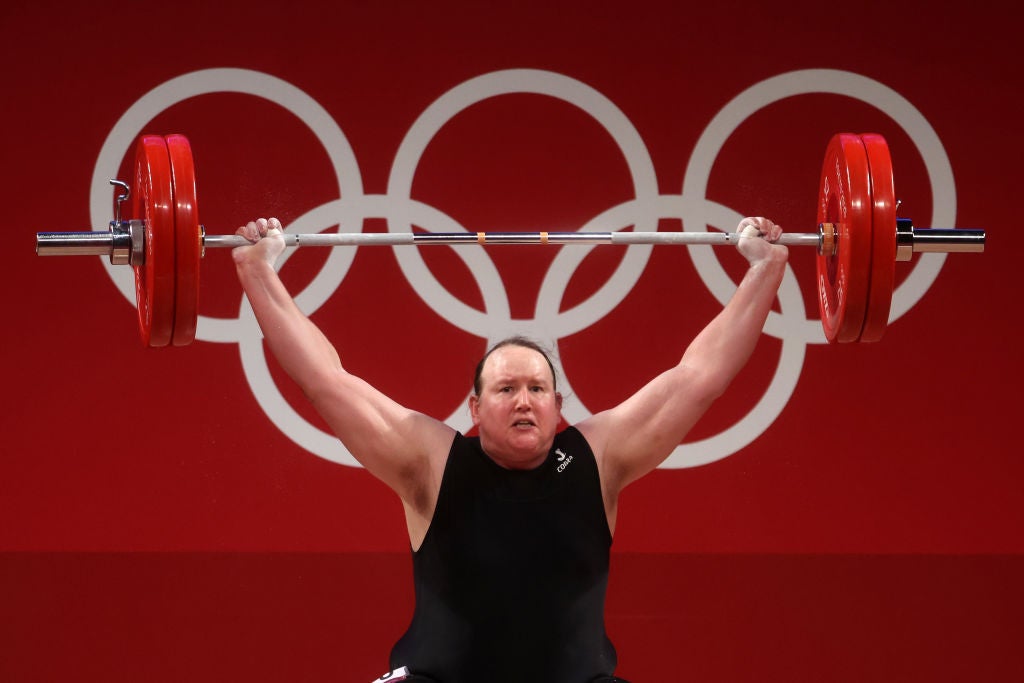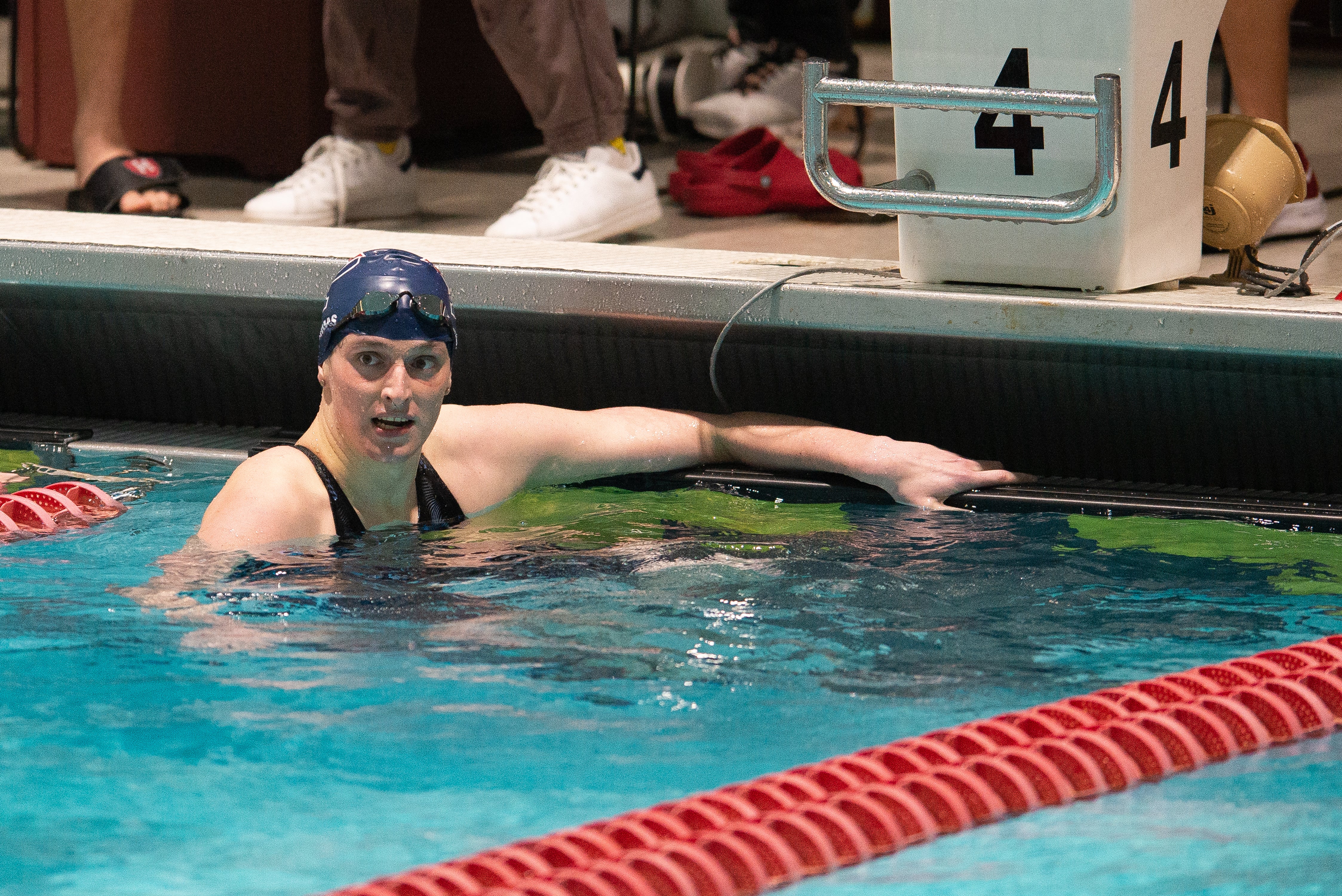Are there any transgender athletes competing at the 2024 Olympics?
Transgender athletes face heavier restrictions in a number of sports than during Tokyo 2020

Your support helps us to tell the story
From reproductive rights to climate change to Big Tech, The Independent is on the ground when the story is developing. Whether it's investigating the financials of Elon Musk's pro-Trump PAC or producing our latest documentary, 'The A Word', which shines a light on the American women fighting for reproductive rights, we know how important it is to parse out the facts from the messaging.
At such a critical moment in US history, we need reporters on the ground. Your donation allows us to keep sending journalists to speak to both sides of the story.
The Independent is trusted by Americans across the entire political spectrum. And unlike many other quality news outlets, we choose not to lock Americans out of our reporting and analysis with paywalls. We believe quality journalism should be available to everyone, paid for by those who can afford it.
Your support makes all the difference.The Paris 2024 Olympics has stricter rules and regulations regarding transgender athletes than previous Games.
The Olympics in the French capital is set to make history as the first gender-equal games, with 50 per cent of the medals going to women, a first in the history of the event.
There has been a rising interest in transgender athletes, with concerns that transgender women have an unfair advantage over fellow competitiors, and a number of federations have strict guidelines.
What are the rules?
The International Olympic Committee, which oversees the Games, does not have specific rules or regulations and instead includes 10 guiding principles. The governing body also states that “each international federation is responsible for setting eligibility rules for its sport, including the eligibility criteria that determine qualification for the Olympic Games”.
The guidelines require transgender women to have transitioned before the age of 12 to be eligible for the women’s category, to prevent any potential biological advantage from male puberty.
Which sports have these rules?
The guidelines from the IOC have been adopted by World Athletics and Fina, swimming’s governing body.
Cycling follow these guidelines for women’s categories but also allow for an “open” category which has replaced the current “men’s category” to allow transgender athletes to compete.
World Rowing allows those who transitioned before puberty to be eligible, and one of their criteria is for the testosterone concentration to be less than 2.5 nmol/L for a period of at least 24 months, while rugby has followed the IOC guidelines.
Triathlon, tennis and archery however require testosterone levels to be below a certain limit to allow athletes to compete.
Other sports allow transgender athletes to compete on a “case by case” basis.

Will there be any transgender or non-binary athletes at the Paris Olympics?
Laurel Hubbard competed in the Tokyo Olympics, becoming the first openly transgender athlete to do so, and finished last in her competition group. She is not competing in Paris.
Nikki Hiltz is transgender and non-binary and uses the pronouns “they/them”, but has always competed in the female category, and will be representing USA at the upcoming Olympics. They set a US trials record in the 1500m to earn a place on the Olympic squad.
Quinn, a Canadian non-binary footballer, has also been chosen to represent their nation at the Olympic Games. The midfielder, who plays for Toronto, has always competed in female categories.
Hergie Bacyadan, a boxer from the Philippines, competed in the women’s 75kg category in Paris while identifying as a trans man. Born a biological female, he was allowed to compete because he had not undergone hormone replacement treatement.

Which transgender athletes are not allowed to compete in Paris?
American BMX rider Chelsea Wolfe had been hoping to compete in Paris before the UCI, cycling’s governing body, changed its regulations and put an end to her hopes. She had qualified for Tokyo 2020 as an alternate.
Halba Diouf’s dream was also ended by World Athletics’ new regulations, effectively barring the Senegalese-born French sprinter from competing in Paris.
Swimmer Lia Thomas became the first transgender athlete to win a US college title in 2022, but lost a legal case against World Aquatics for her right to compete. The American remains barred from competing in the female category.
What was the boxing controversy?

On 1 August, Angela Carini withdrew from her fight with Imane Khelif after the latter landed one significant punch. At the 2023 World Championships, Khelif was disqualified by the International Boxing Association (IBA) for failing a gender eligibility test. Taiwan’s double world champion Lin Yu-ting lost her bronze medal at the same competition, after she also failed to meet the gender eligibility criteria.
The IBA did not specify why the boxers failed their gender eligibility tests but did clarify that neither underwent testosterone examinations. Neither Khelif nor two-time world champion Lin identifies as transgender or intersex.
The World Championships were organised by the IBA, which is no longer a federation recognised by the International Olympic Committee. The boxing competition at the Paris Olympics is being organised by the Paris Boxing Unit (PBU), an ad-hoc unit established by the IOC’s Executive Board.
The IOC said in a statement: “All athletes participating in the boxing tournament of the Olympic Games Paris 2024 comply with the competition’s eligibility and entry regulations, as well as all applicable medical regulations in accordance with rules 1.4 and 3.1 of the Paris 2024 Boxing Unit. The PBU endeavoured to restrict amendments to minimise the impact on athletes’ preparation and guaranteeing consistency between Olympic Games.”


